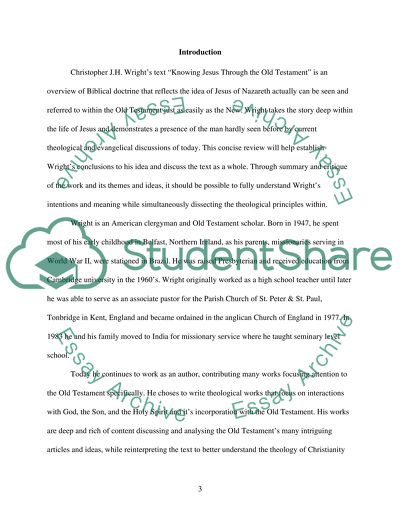Cite this document
(“Book Review (Wright) Knowing Jesus Through Old Testament Report/”, n.d.)
Book Review (Wright) Knowing Jesus Through Old Testament Report/. Retrieved from https://studentshare.org/religion-and-theology/1634481-book-review-wright-knowing-jesus-through-old-testament
Book Review (Wright) Knowing Jesus Through Old Testament Report/. Retrieved from https://studentshare.org/religion-and-theology/1634481-book-review-wright-knowing-jesus-through-old-testament
(Book Review (Wright) Knowing Jesus Through Old Testament Report/)
Book Review (Wright) Knowing Jesus Through Old Testament Report/. https://studentshare.org/religion-and-theology/1634481-book-review-wright-knowing-jesus-through-old-testament.
Book Review (Wright) Knowing Jesus Through Old Testament Report/. https://studentshare.org/religion-and-theology/1634481-book-review-wright-knowing-jesus-through-old-testament.
“Book Review (Wright) Knowing Jesus Through Old Testament Report/”, n.d. https://studentshare.org/religion-and-theology/1634481-book-review-wright-knowing-jesus-through-old-testament.


